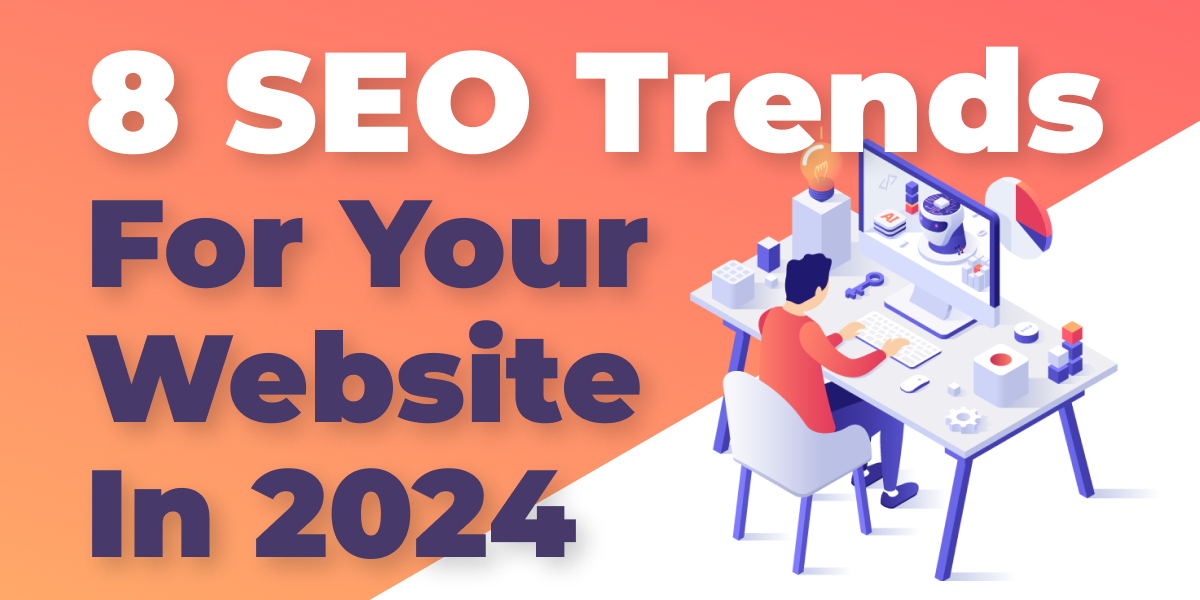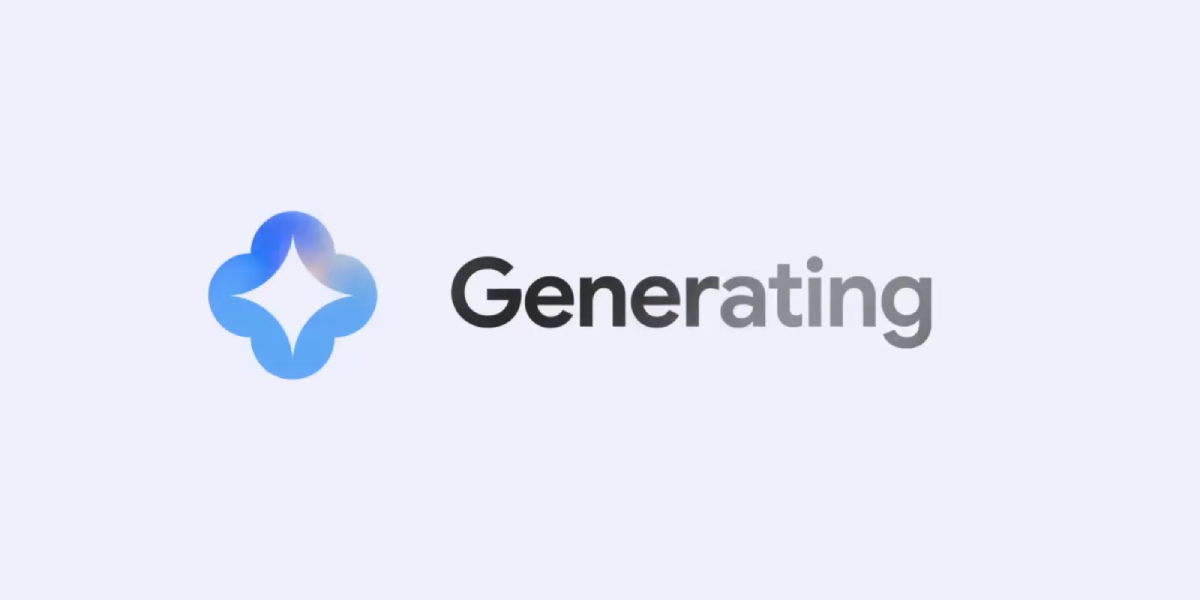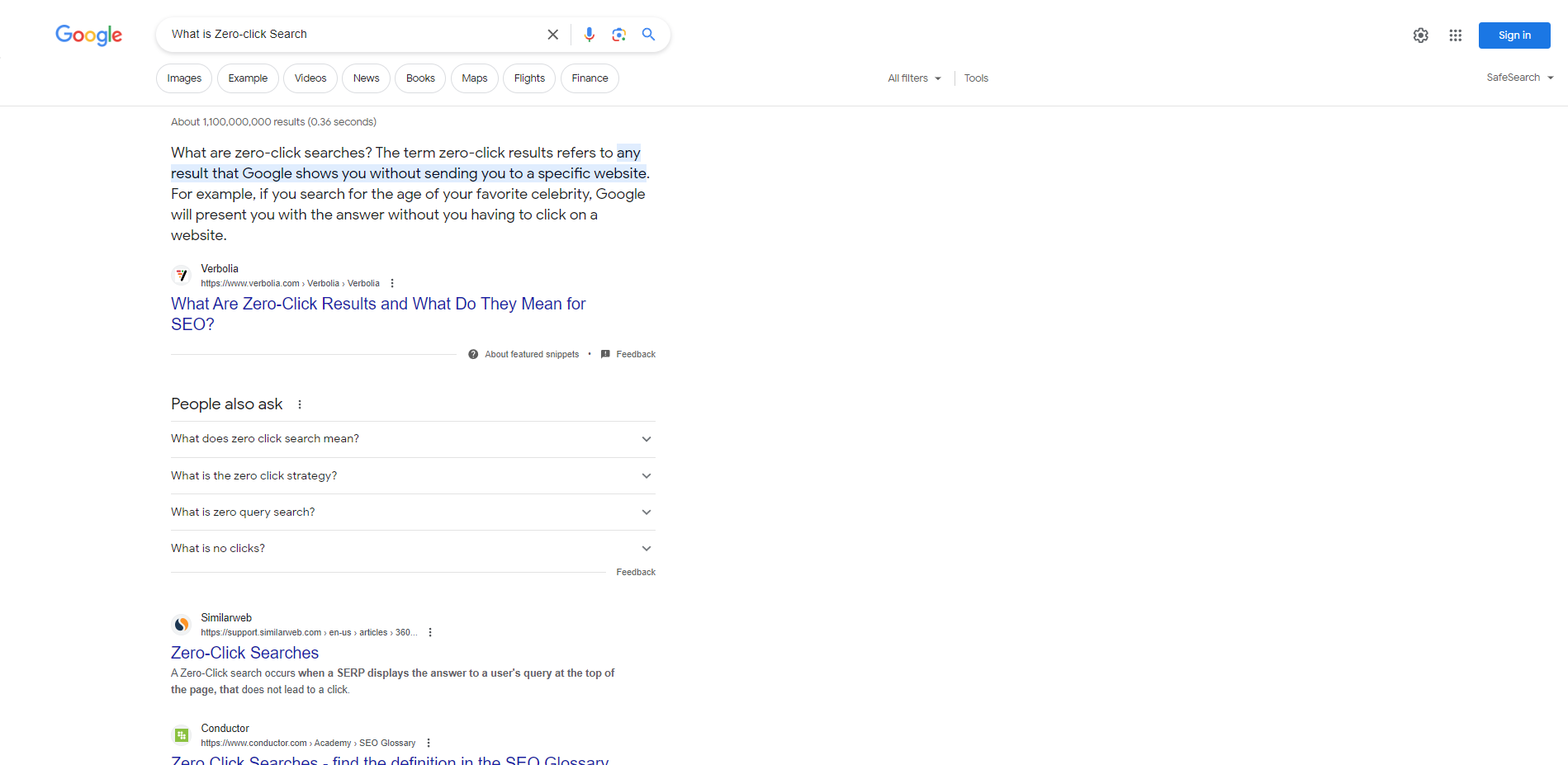February 13th, 2024 at 4:05 pm
8 SEO Trends that will boost your Website Ranking in 2024
Categories:
7 minutes reading

With the year coming to a close, it’s time to have a look at the upcoming 2024. Staying relevant in the fast-paced online world has always been hard work, and 2024 will be no different. As usual, Google will have some changes, which we will all have to follow if we want to stay relevant and on the top Search Results spots. Of course, we can’t blame them as the tech giant struggles to maintain its search engine market hegemony. Currently, they have 91.54% of the market, which constitutes roughly a 2% drop since the start of 2023. This trend has been going on for quite a while now, with ups and downs, but since May 2023, the giant has been down. Though not too worrying at the moment, this trend may turn out to be devastating in the long run.
Naturally, the heads at Google have committed to nurturing their healthy relationship with the users. Thus, in 2024, we expect them to implement significant changes reflecting the ever-changing user behavior. As you can imagine, to stay on top of the SERP, you must meet these changes and make your website a much more welcoming place.
So, what will be the trends in 2024, and how should you tweak your SEO to accommodate them? Let’s find out.
AI at the forefront

The rise of AI is simply remarkable. Since its inception, AI has grown by 20% each year. Moreover, experts suggest that its influence will only grow, expecting the industry to reach 15.7 trillion dollars by the end of the decade. Also, with 97% of smart device users interacting with AI on a daily basis, it’s no wonder that AI will take the spotlight in almost every aspect of online communication.
Google itself is increasingly relying on AI to understand and utilize users’ intent and create an algorithm that will sort the results based on genuine first-hand data.
Bard and Gemini are the first steps toward building an AI empire and tapping into that market as well, showing their dedication to this industry.
So, to stay ahead of the competition, you might want to enhance your website UX by implementing AI tools. You can also help yourself by utilizing AI SEO tools such as keyword research tools and link-building assistants.
When it comes to content, AI can be of great help. Still, despite the significant advancement in all AI generators, one thing they can’t fake is personal experience. For Google, personal experience has always been a cornerstone of high-quality content, as it gives value to the user.
So, next year, AI will be a hot topic. Thus, getting some AI tools ASAP would be wise and help you stay ahead of the competition.
SGE will be the new standard

Speaking of AI, Bard and Gemini are not even the best AI products that Google will introduce in 2024. Google’s Search Generative Experience is, without a doubt, the revolution in search engines we’ve been looking for. This cutting-edge technology uses AI to provide more natural, conversational, and personalized search results. So, instead of listing some links, SGE will try to understand the user’s query and provide a more comprehensive and interactive response.
Unfortunately, not everyone had access to the beta version, so we can’t talk from first-hand experience here. Still, if SGE is half of what it’s advertised as, this will be an entirely new chapter in Search engines and SEO as a whole.
Unfortunately, this means new SEO guidelines for all website owners and SEO experts. First and foremost, we might be looking at the twilight of keywords. Website owners must shift to understanding the intent behind the user’s query. For example, if someone asks how much baking soda you need for a loaf of bread, advertising bakeries will be pointless, as, obviously, this user will make their own bread. On the other hand, retailers selling various cutleries, utensils, and electric appliances needed to bake the perfect bread can easily target them.
Furthermore, SGE will focus on informational searches rather than transactional ones. This means Google will push back landing pages that aim for direct sales in favor of informative blog posts and other useful content that answers queries, not offer a product or service. True, this will make the sales department’s work much harder, but it will underline the need for high-quality infotainment.
Finally, SGE will focus on prioritizing user experience, so websites will have to be easily navigable, mobile-friendly, voice and image search optimized (more on that later), and, of course, have high-quality content.
High quality is now a must

Yes, quality content will remain king. In February of 2023, Google made it clear that they won’t care if the content is AI-generated as long as it abides by their quality standards. Unfortunately, AI is not quite able to cover those entirely, as this includes personal experiences and added value that Chat GPT and other AI generators can’t produce. So, content writers can sleep soundly for now. AI is not taking your job anytime soon.
So, while an AI generator can create mediocre content by the ton, it can’t compete with genuine human-written texts, at least for now. However, what AI did was drive the quality standards higher than ever. Only ten years ago, keywords were enough to skyrocket you to the top of SERP. Today, you need to add high-quality images and videos, have perfect readability, and, of course, understand the material you are introducing.
So, how do you make sure you will retain your rankings in Google? Well, all you need to do is produce some genuinely high-quality content. To do that, you will have to either spend at least half a day writing your own blog or hire an SEO content writer to do it for you. Either way, you will have to make some new investments if you already haven’t. You will either spend money or time. The choice is yours.
Expertise, Trust, and Authority are no longer enough

Speaking of high-quality content, Google is no longer satisfied with showing your experience, trust, and authority on the topic at hand. The search engine is now fixated on experience as well. This means you need to showcase your personal expertise in solving the issues and queries of the users. In other words, the authority factor has transferred from industry to a specific topic. This push will become even more noticeable in 2024 as the focus shifts towards personalization.
Thus, to remain relevant, you need to follow the hub and spoke strategy. This strategy dictates creating dozens, if not hundreds, of smaller blog pieces, explaining specific aspects of a broader topic. Then, write a general topic and link all these smaller pieces inside to create a circle of knowledge. For example, writing on “Creating a digital marketing strategy” can be considered the hub. In this case, the spokes will be “how to build a winning landing page,” “how to create a compelling CTA,” and others.
Creating such cluster topics will be extremely time-consuming, but it will build an internal content ecosystem to keep users on your website longer, resulting in better ranking scores.
Most importantly, however, learn how to write authoritatively, use proper data, and don’t mislead your audience. For example, citing unexisting research or quoting out of context to serve your own needs will be punished harshly by Google.
Finally, take your time to create your author’s bios. This will automatically give you some extra points and enhance your credibility in the community.
Voice and image searches will be the focus

We’ve already mentioned it several times, but when it comes to SEO, it bears repeating. Voice and image searches are on the rise and soon will become the norm. Well, not in 2024, but still, there is a significant influx of people using those two methods to satisfy their queries.
In 2024, voice searches are expected to reach 8 billion monthly. Another 12 billion will utilize Google Lens and image search as well. This trend is even more noticeable in the US, as about 85.4 million users utilize voice search on Google Assistant. 81.1 billion use Siri and about 73.7 billion use Alexa.
Naturally, you must tweak your metadata to facilitate these changes in user behavior. People often speak differently than they type, so you need to account for that during SEO optimization and keyword research.
Moreover, users most often use the voice-activated search mode to make a rapid search for a product or service.
The same goes for image searches. Google Lens is most often used to recognize a brand or an item and find out where the user can buy it. Naturally, high-quality pictures with properly optimized file names, tags, and alt tags are no longer recommended. It’s a must if you want to keep your top spot on Google and make sure that image searches will land precisely on your page.
Still, when it comes to voice searches, people will use them to find a local solution to their problem.
Local SEO will become even more important

Local SEO efforts have been on such lists ever since 2018. Still, after the COVID-19 pandemic and the massive restrictions on traveling and moving freely, people finally realized how important it is to know your local market. So, today, around 46% of all Google searches have local intent. This means that half of all your organic traffic comes from people looking for a local solution to their problem. Furthermore, as already explained, most voice searches also seek a local solution.
Thus, in 2024, it’s a good idea to improve your local SEO so you can enjoy an influx of new customers. This includes optimizing your Google My Business profile. If you already haven’t, give as much information about your business as possible. Add a FAQ section and list your biggest benefits. In 2024, Google My Business should be on focus, and you must add posts regularly if you want to remain relevant.
Zero-click searches should be in the mix

2024 will be the year when zero-click searches will finally reach their potential. The zero-click search is practically a straight-away answer to a query that doesn’t need the user to click to receive. This information is above all results and often is the only thing that users will ever see. Unfortunately, zero-click searches, as the name suggests, won’t lead to traffic.
However, it will do wonders for your branding. Users will see your brand as an authoritative website, leading to better credibility. Naturally, this will lead to increased sales in the long run, which is far more effective than just “cheating” the user to get on your website.
Naturally, you need to answer Google’s call and make sure you can accommodate the user’s interest. As yourself, what’s the first question anyone would ask about your product? Give a straight answer within a blog post, preferably in the intro, and go for the lengthy explanations afterward. Naturally, some topics can’t be explained in 2-3 sentences. Still, if the question is which is the best hosting company, the answer HostArmada should be front and center, while the explanation of why can come later. And if the user is interested in your reasoning, they can go in and check it out.
Naturally, to qualify, you need nothing short of exceptional content. Research, quotes, and references are a must. But there’s more. You will have to make your content entertaining and easily scannable. This way, Google will be able to take snippets much easier, giving your website a better chance to be featured at the zeroed position.
Being fast will be more important than ever

Finally, we have website speed. Now, website speed has always been an integral part of your SEO. Still, today, users are far more impatient, and even a one-second delay will tarnish your results significantly. It has been well-documented that site speed has a direct correlation with conversion rates, so naturally, the faster your website, the better your results will be.
The core web vitals you should always be on top of are the Largest Content Paint (LCP), the First Input Delay (FID), and the Cumulative Layout Shift (CLS). LCP is the time it takes for the main content to appear on the screen. This can be an image, a text, or a video. FID refers to the time it takes for your website to respond to a user’s first Interaction. Finally, CLS are the unexpected movements on your page, which often leave the user frustrated and unable to complete an action.
In 2024, the FID will be replaced by Interaction to Next Paint (INP). It measures the speed with which your website reacts to users’ actions. The faster your website responds, the better your ranking will be.
So, you need to analyze these core vitals and tweak your website to meet and exceed the current standards.
However, if nothing works, the problem might be in your hosting. In this case, all you can do is switch to HostArmada. Our cloud-based hosting offers lightning-fast website speed, robust security features, and 99.9% guaranteed uptime. This will significantly boost your SEO efforts, as speed, security, and reliability are among the cornerstones of user satisfaction. So, check out our plans and choose the one that suits your needs perfectly. Don’t waste time in taking this first and crucial step in upgrading your SEO in 2024.